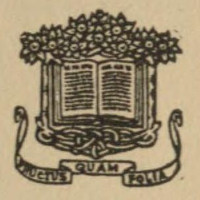TALES FROM A FAMISHED LAND
TALES FROM AFAMISHED LAND
INCLUDING
The White Island—AStory of the Dardanelles
BY
EDWARD EYRE HUNT
Author of “War Bread,” Etc.

GARDEN CITY NEW YORK
DOUBLEDAY, PAGE & COMPANY
1918
Copyright, 1918, byDoubleday, Page & Company
All rights reserved, including that of
translation into foreign languages,
including the Scandinavian
COPYRIGHT, 1916, 1917, BY THE REPUBLIC PUBLISHING COMPANY, INC.
COPYRIGHT, 1917, BY THE ATLANTIC MONTHLY COMPANY
COPYRIGHT, 1917, BY THE AMERICAN RED CROSS SOCIETY
COPYRIGHT, 1917, BY THE OUTLOOK COMPANY
COPYRIGHT, 1917, BY P. F. COLLIER’S SONS
To the
MEMORY OF E. O.
Collier’s Weekly, The Outlook, The New Republic, TheAtlantic Monthly, and The Red Cross Magazine have publishedcertain of these tales in serial form, and to them my thanks aredue for permission to republish in book form.
FOREWORD
Herbert Clark Hoover, chairman of the Commission for Relief inBelgium, once called that amazing organization, “the door in thewall of steel.” Between November, 1914, and March, 1917, whenAmerica entered the world war, there had passed through that doormillions of dollars in money, thousands of tons of foodstuffs andclothing, and four or five dozen young Americans, most of themjust out of their ’teens, who played a part in Belgian historywhich they are still trying to explain in words of one syllable toadmiring relatives and friends!
Theirs is a story of sweet romance, gallant adventure, grotesquecomedy, and grim tragedy. The tales which are here set down are apart of their story. These tales are not strictly truth, but theyare not fiction. They[x] are both. They try to describe the state ofmind, the atmosphere in which History—both truth and fiction—ismade; the atmosphere behind long lines of barbed-wire and bayonets,behind waves of poisoned gas, in a famished land where ten millionheroic people, both French and Belgians, have silently and steadilyfought to keep their self-respect, their sanity, and their courage.
These tales have been written in a spirit of gratitude and love;with gratitude and love first of all to Herbert Clark Hoover, thento the other officers and members of the Commission for Reliefin Belgium, and then, and perhaps most of all, to those unnamedFrench, Walloon, and Flemish millions with whom we Americans stoodshoulder to shoulder on the inside of the “door in the wall ofsteel.”
E. E. H.
4 Place de la Concorde, Paris
New Year’s Day, 1918.
<